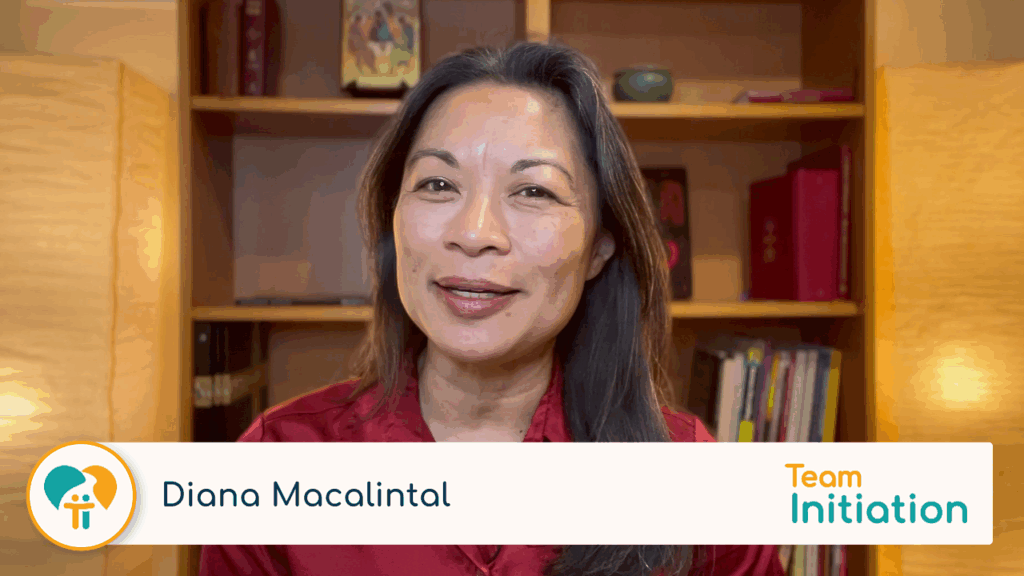
We are disciples. Being so has its pluses and minuses.
The advantage of being a disciple
The big plus is, we get to do the work of Jesus. This has been true from the very beginning. In Mark’s gospel, Jesus “called the twelve and began to send them out two by two” (6:7). While they were “out,” the disciples proclaimed repentance, cast out demons, and cured the sick. All very Jesus-like, and also very taxing. When the disciples got back home, they told Jesus everything they had done. Jesus could see that they were worn out. “He said to them, ‘Come away to a deserted place all by yourselves and rest a while.’ For many were coming and going, and they had no leisure even to eat” (6:30).
So Jesus plans to take the disciples away on a mini-retreat on a quiet little beach he knew about. But just as they arrived, they encountered “a great crowd; and he had compassion for them, because they were like sheep without a shepherd….” (6:34).
Here’s the problem
We recently received an e-mail from an RCIA leader who has 30 catechumens. 30! Not 30 catechumens and candidates. 30 catechumens. Most of them showed up in June. He has a small team, and they’ve been running their legs off doing what we do with catechumens. And now, in the middle of Advent, the team is pooped. They’re worn out. And they have a problem. That’s why the team leader wrote us.
“The problem,” he wrote, “is that new people keep coming. Like this month!”
Okay, to be fair, he knows that isn’t a “problem,” as in, something unfortunate. He’s thrilled. But what should he do? Everyone is about to fall over with exhaustion.
I told you being a disciples has its pluses and minuses. Here’s the minus.
The disadvantage of being a disciple
The big minus is, we get to do the work of Jesus. Because Jesus had compassion for the shepherdless crowd, “he began to teach them many things” (6:34). Until late. Really late. And the disciples were tired and hungry. They urged Jesus to tell all the people to come back next June. Okay, they didn’t say “June,” but they clearly didn’t want to deal with any more seekers right then.
Well you know the rest of the story. Jesus took the meager resources that he and his team had, and he began to feed all 5,000 of them. 5,000!
The disciples couldn’t imagine how they were going to take care of the needs of so many seekers, especially after they had used up all their energy on the mission Jesus had sent them on. But before he sent them on mission, Jesus ordered the disciples “to take nothing for their journey except a staff; no bread, no bag, no money in their belts” (6:8). And they did fine. They did great. With no resources. And they had apparently already forgotten that lesson.
We don’t always see the miracle
This Advent, what would you do if, say next Tuesday, 5,000 seekers showed up at your door? Would that be a problem? You bet it would! And you would deal with it. You’d figure it out. Because you’d know that was a miracle, a sign from God.
This Advent, what would you do if, say next Tuesday, 5,000 seekers showed up at your door?
But if one or two seekers show up — after we’ve already started — “miracle” is not always the first word that comes to mind. So we sigh deeply and figure out how to work them into our existing structure. And just as we’re patting ourselves on the back, another seeker arrives. Now what? And after we get her settled, another shows up. If we are not careful, we can make the same mistake the first disciples did and urge Jesus to send them away.
Seven ways to welcome seekers when you can’t welcome seekers
I’ll share with you some ideas I have for welcoming seekers whenever they show up, but don’t read these as hard and fast rules. Be creative. Adapt my ideas to your situation. Come up with your own ideas. The only “rule” is, we can never turn anyone away. Because we are doing what Jesus did.
- Take the seeker to Mass. If you have Mass all year long, you have a year-round catechumenate already in place. Find someone to sit with the new seeker every Sunday and be friendly.
- Schedule some dinners. Ask six parishioners to invite the seeker over for dinner. One parishioner per month for six months.
- Schedule some coffees. You or someone from your team can meet with the seeker, one on one, three or four times to start building a relationship.
- Check the parish calendar. What is your parish doing in the next one, two, or three months that you could invite the seeker to?
- Give up the idea of creating an “RCIA community.” The community is the parish. If we think of the current “class” of RCIA seekers as a closed group who are all headed toward Easter Vigil together, any seeker who shows up “late” will always seem like a disruption.
- Give up the idea of Easter Vigil as the goal. The goal is living a life in Christ. The purpose of an RCIA group is to train seekers how to live a Christian life (see RCIA 75). Some will learn how to do that well enough, before the Easter Vigil, that they no longer need the RCIA team to hold their hands. Some will not be able to learn it in time for the Easter Vigil and will require more ongoing training. For some seekers, their training may last several years (see RCIA 76).
- Trust in the Holy Spirit. When the disciples landed on the other side and saw that huge crowd, they were afraid. They knew they didn’t have it in them to meet all the needs in front of them. And neither do we. But the Holy Spirit will provide. Believe that.
How do you do it?
What are some suggestion you have for welcoming seekers at any time? Please share your ideas so we can all get better at doing this.


















What a challenge for that team! You and your team and seekers will be in our prayers.
I want to know how he received 30 catechumens? Where is he and how large is the parish and how many years have they been doing RCIA?
Is someone on the team, when things slow down (hah!) be willing to write how their parish is so inviting that so many folks expressed interest?
I want to know what they’re doing to have 30 catechumens!
In addition to wanting to know what this parish is doing to draw so many seekers to have 30 catechumens, I love these suggestions, Nick & Diana! Our parish has 2 seekers (non-baptized) and 3 Christian brothers and sisters who are inquiring about the Catholic tradition. While we’ve tried to create a community atmosphere with regular weekly sessions, it is not working with this particular group. Their family and work schedules conflict with one another so we are unable to get them together at the same time. So our team has worked out a schedule to meet with individuals as schedules allow. We are also matching them with sponsors who will invite them to participate in parish events, including attending Mass with them. We are working diligently to not only answer their questions, but to help them develop a relationship with the parish community and (primarily) with Christ Jesus. We’ll see what the Holy Spirit has in store for us with this new dynamic.
We do not yet have year round catechumenate formally, but I would suggest several meetings with the person, give them some reading material, find a parish sponsor for them who can also meet with them. There are ways to work with this. and, always, pray to the Holy spirit for more guidance.
Thanks so much for that article how to welcome the 5000. Our RCIA Team and participants are on the precipice of the Easter Vigil and have even taken on a Pentecost Confirmation and now I have 5 new people who want to start. I just don’t have the “manpower” but I may be able to use some of the suggestions with my team.